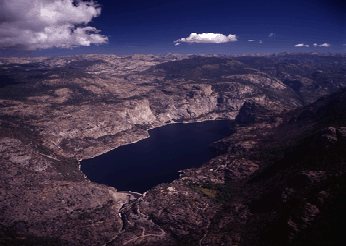Overview
 CDWR Photo.
CDWR Photo.
As trustee for California’s fish and wildlife resources, the CDFW has jurisdiction over the conservation, protection, and management of fish, wildlife, native plants, and habitat necessary for biologically sustainable populations of those species. The California Water Code requires that when considering the appropriation of water, the State Water Resources Control Board (State Water Board) consult with CDFW on the amounts of water needed for fish and wildlife. CDFW engages in the State Water Board’s water right process via review, analysis, and comment on new water rights applications, development of conditions for water right permits and licenses, as well as any proposed changes to existing water rights. CDFW applies science through the identification of studies, surveys, and data needs required for evaluation of baseline conditions associated with water projects, development of bypass flows and other conditions necessary to protect fish and wildlife resources, and development of terms and conditions to protect public trust resources for water transfer change petitions.
What Are Water Rights?
A water right is legal permission to use a reasonable amount of water for a beneficial purpose such as swimming, fishing, farming or industry. California water rights law is administered by the State Water Board’s Division of Water Rights. The State Water Board is the only agency with authority to administer water rights in California. If you take water from a lake, river, stream, or creek, or from underground supplies for a beneficial use, the California Water Code requires that you have a water right. If you began using surface water or groundwater from a subterranean stream after 1914, when the Water Commission Act was enacted, unless you have a riparian right, you must apply for and receive approval from the State Water Board before using water. If the state approves your application, you will receive a water right permit.
Lillian McDougall, Lillian.McDougall@wildlife.ca.gov